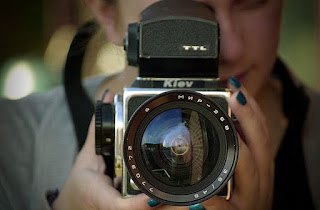 |
| MDX Avid Suit photo. Marzena Maliszewska |
We started the year discussing the workflow of the postproduction process. The good practice of thinking about shape and structure was introduced. It is common that when starting with a new project, it is easy to get distracted and disorientated. However, there is a certain order, which put in place, keeps the postproduction process organised.
To start with, it is important to view all the rushes and log them. There was the emphasis on using the script, or the idea, as guidance and as originally intended. I am beginning to understand that the editor has an equal input in the shape of the movie as much as the director does. I learnt from the lectures that it is very important to focus on two questions: which shoots do I want to use and where the in/out point is. Furthermore I started to think about the amount of information I want to use. As a result of taking those two points into consideration it takes me less time to assemble the footage to the time line.
At this stage of the learning process I am beginning to feel more confident using Avid Media composer. I do finally understand how to link media. I am assembling the footage efficiently and with good practice using a keyboard. I still struggle with exporting the project to the move file. To overcome this, I frequently export same files for practice purposes. I still struggle with logging the footage. For that reason I’ve booked an individual tutorial in Avid Suite. I do also feel much more confident assembling the video to the time line and then assembling the sound. For this reason I have watched a couple of YouTube tutorials and improved a bit. I still need to practice more.
I have also started editing titles, and for the first time have used the fade in and fade out option for the titles. I have always found this effect subtle and elegant at the beginning of the movie but used it for the first time this year. I have started to feel braver using acid and I’ve started to experiment much more. Last year I would only go from in to out point and add title and credits.
This year I have started to ask myself ‘what if I do this …” more often. I have also begun to deliberately experiment with the shots length. On a couple of occasions I have added a shot with no action on it and showed this experiment of mine to a couple of friends and asked for feedback. The majority said it was boring and I should cut it out but I’ve found three people who actually liked the idea.
I have also noticed that I did honestly enjoy this slow space in my fast paced movie. In fact, I now find that I actually like long, slow shots more then fast pace cuts. I have even found fast pace cuts irritating at some point. And it is not only me who thinks that. An editor, sound designer and director Walter Murch, in his book, "in the blink of an eye" compares and overactive editor, who changes shots to frequently, to a tour guide who can't stop pointing things out. "If the guide - that is to say, the editor - doesn't have the confidence to let people themselves occasionally choose what they want to look at, or to leave things to their imagination, then he is pursuing a goal (complete control) that in the end is self - defeating".

